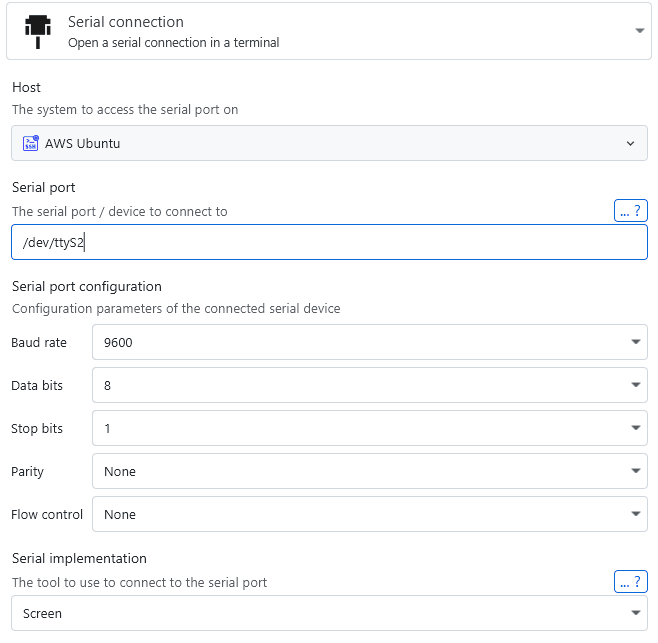Serial
Opening serial connections in your terminal
Introduction
XPipe supports launching serial connections in your terminal by delegating the launch parameters to an existing serial tool. For this, you can configure all the typical serial options, both for local and remote systems:

Serial implementation
XPipe delegates the serial handling to external tools. There are multiple available tools XPipe can delegate to, each with their own advantages and disadvantages. To use them, it is required that they are available on the host system. Most options should be supported by all tools, but some more exotic options might not be.
Before connecting, XPipe will verify that the selected tool is installed and supports all configured options. If that check is successful, the selected tool will launch.
Serial ports
The notation for serial ports depends on the operating system of the target system.
Windows
On Windows systems you typically refer to serial ports via COM<index>.
XPipe also supports just specifying the index without the COM prefix.
To address ports greater than 9, you have to use the UNC path form with \\.\COM<index>.
WSL
If you have a WSL1 distribution installed, you can also reference the serial ports from within the WSL distribution via /dev/ttyS<index>.
This does not work with WSL2 though, only WSL1 distributions support this.
If you have a WSL1 distribution installed, you can use it as the host for this serial connection and use the tty notation to access it with XPipe.
Linux
On Linux systems you can typically access the serial ports via /dev/ttyS<index>.
If you know the ID of the connected device but don't want to keep track of the serial port, you can also reference them via /dev/serial/by-id/<device id>.
You can list all available serial ports with their IDs by running ls /dev/serial/by-id/*.
macOS
On macOS, the serial port names can be pretty much anything, but usually have the form of /dev/tty.<id> where the id the internal device identifier.
Running ls /dev/tty.* should find available serial ports.
